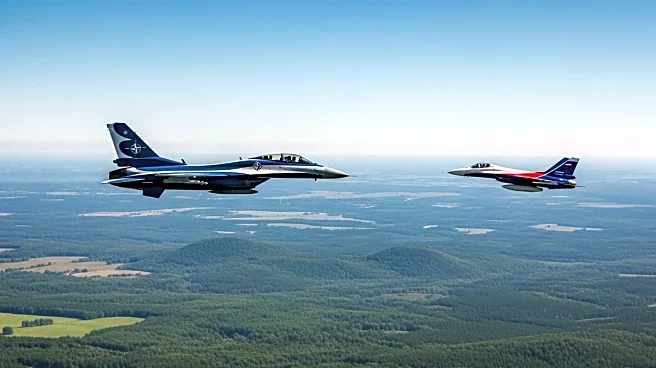What is the story about?
What's Happening?
NATO intercepted three Russian MiG-31 fighter jets that violated Estonian airspace over the Gulf of Finland. The jets entered without permission and remained for 12 minutes before being forced to flee by Italian F-35 fighters stationed in Estonia. Estonia's foreign ministry summoned Russia's chargé d'affaires over the incident, marking the fourth airspace violation by Russia this year. Russia denied the incursion, claiming the flight adhered to international rules. Estonia has requested NATO Article 4 consultations, and the North Atlantic Council will convene to discuss the incident.
Why It's Important?
The violation of Estonian airspace by Russian jets underscores escalating tensions between NATO and Russia. Such incidents challenge NATO's security and territorial integrity, prompting calls for increased political and economic pressure on Russia. The situation highlights the strategic importance of NATO's eastern flank and the need for robust defense measures. The incident may lead to heightened military readiness and potential sanctions against Russia, affecting geopolitical stability in the region.
What's Next?
NATO's North Atlantic Council is set to meet to discuss the airspace violation, potentially leading to increased military presence and defense measures in Eastern Europe. Estonia's request for Article 4 consultations may result in coordinated actions among NATO members to address security threats. The incident could also prompt further diplomatic engagements and sanctions against Russia, influencing future relations between NATO and Russia.
Beyond the Headlines
The repeated airspace violations by Russia may indicate a broader strategy to test NATO's resolve and unity. This could lead to long-term shifts in defense policies and alliances within Europe. The incident raises ethical questions about international airspace sovereignty and the balance between military deterrence and diplomatic resolution.















